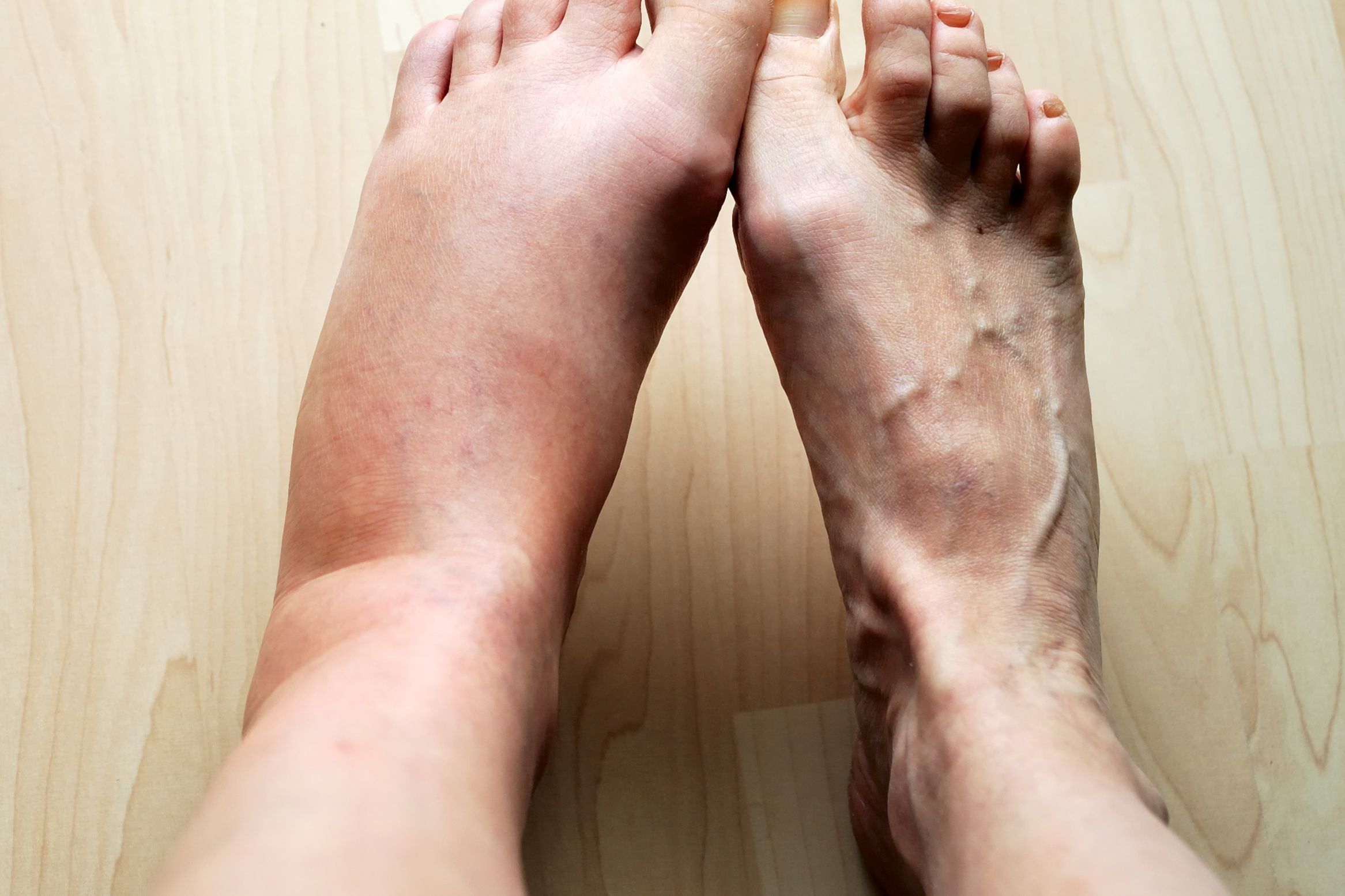Swollen feet, also known as edema, can happen for various reasons, like standing or sitting for long periods, pregnancy, injury, or underlying health conditions. Here are some natural remedies to help reduce the swelling:Swollen feet can be uncomfortable, but a few natural remedies might help:
but a few natural remedies might help:
- Elevate Your Feet: Prop your feet up above heart level for 15–20 minutes a few times a day to improve circulation.
- Soak in Epsom Salt: Soak your feet in a basin of warm water with Epsom salt for 15–20 minutes to reduce swelling.
- Massage with Essential Oils: Gently massage your feet with diluted peppermint or lavender essential oil to ease discomfort and improve circulation.
- Stay Hydrated: Drink plenty of water to help flush out excess fluids.
- Reduce Salt Intake: Cutting back on salty foods can help prevent water retention.
- Apply Cold Compress: Wrap ice packs in a cloth and apply them to the swollen area for 10–15 minutes.
- Ginger or Dandelion Tea: Both have natural diuretic properties that may help reduce fluid buildup.
Heat often causes, in addition to sweating and discomfort, swelling in the feet. Fortunately, today we're sharing a trick that will help you solve this problem very quickly.
You will need:
-A basin.
-1 sachet of sodium chloride.
-A few sage leaves (optional).
-10 drops of cypress essential oil (optional).
-5 drops of lemon essential oil (optional).
How to use:
First, fill the basin with lukewarm water, then dilute the sodium chloride in it and immerse your feet for 15 minutes. Once the time is up, dry with a clean towel. Home remedies to combat unpleasant body odor
Perspiration odor, bad breath, foot and hand odor... Body odor is considered unpleasant, and we do everything we can to get rid of it. While traditional deodorants and antiperspirants are popular, some home remedies can help you combat the unpleasant odors produced by your body.
Bad breath, also called halitosis, is a taboo subject. Those affected don't dare talk about it to their doctor, yet bad breath affects more than 25% of the population at some point during the day and sometimes becomes a real social handicap.
Combating perspiration odor
Sweating is normal. Sweat is produced by the skin that helps expel excess water from the body and prevent overheating. As it evaporates, excess heat is eliminated, and the sweat released becomes the ideal food source for microscopic bacteria living on the skin. It's by consuming sweat that bacteria produce odorous chemical compounds that are responsible for unpleasant odors. To remedy this, sage is used. Since ancient times, sage has been considered a plant with exceptional medicinal properties. Its Latin name, salvia, comes from salvare, which means "to save, to heal." In the case of perspiration, it's the leaves that are of interest.
First, grind the dried sage leaves into a powder using a mortar and pestle. Add a tablespoon of talcum powder, the proportions being approximately two-thirds to one-third. Mix and apply the mixture directly to the underarms. Sage leaves help eliminate perspiration thanks to their essential oils, which paralyze the nerve endings in the sweat glands, the glands that produce sweat. Talc, on the other hand, will absorb moisture.
There's no need to use this remedy every day; save it for dates, as perspiration is an essential natural phenomenon.




